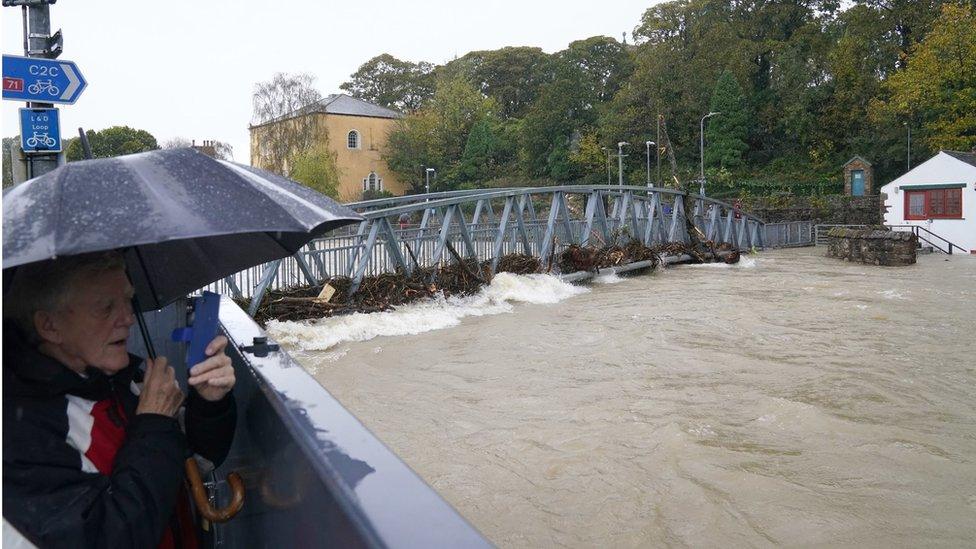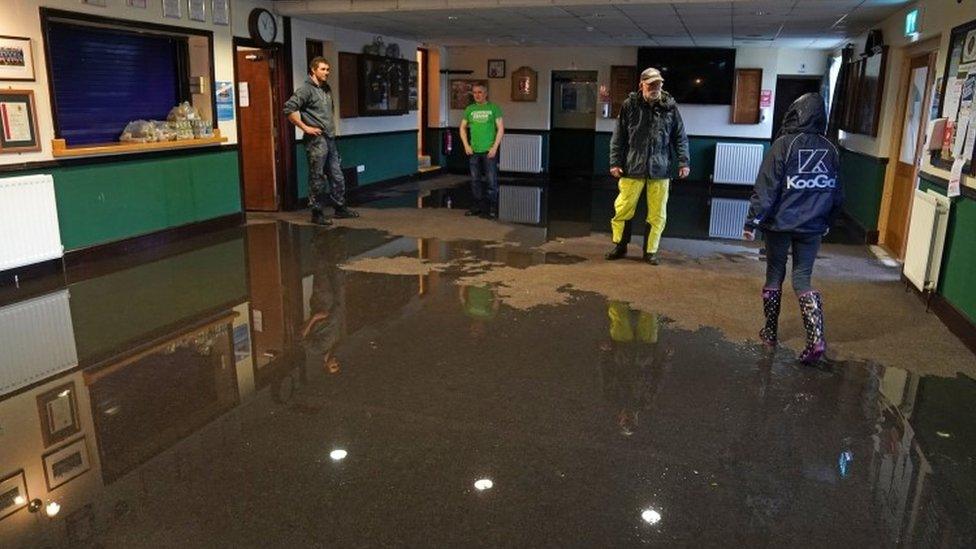Cumbria: Flood defences protected hundreds of homes
- Published

The River Cocker came up as far as a stretch of defence wall in Cockermouth on 28 October
Flood defences helped prevent worse damage from the heavy rain which caused disruption across Cumbria a week ago, the Environment Agency has said.
A total of 43 properties were flooded when more than 12in (30cm) of rain fell in a 24-hour period - the third highest accumulation of rain since 1994.
However, more than 1,440 were directly protected thanks to the defences.
Advance action by Environment Agency officers was credited with preserving a further 4,000 properties.
This included work to clear rivers, and removing debris and blockages from grilles and watercourses.

Volunteers managed to restore Keswick RFC's clubhouse in time for a weekend function
The heavy rain caused disruption to road and rail services and damage to some properties, although no serious incidents were reported.
Both the clubhouse and pitch at Keswick Rugby Club ended up under water, which put paid to the weekend fixtures, although a social event was salvaged.
Chairman Alan Lambert said: "We got a couple of dozen people and they were able to move the furniture and the freezers and the coolers and what have you.
"The walls are cement render, so they can be cleaned, [and] on this occasion we were able to get rid of the water, clean it, dry it and were actually able to have a function in the clubhouse on the Saturday evening."
Some of the flood defences were installed after Storm Desmond caused devastation in December 2015.

Lifeboat volunteers from Silloth RNLI were called out to rescue people from a car stranded in floodwater
The Environment Agency has also now announced the completion of a £15m natural flood management programme across the country, with 14 of the 60 pilot projects trialled in Cumbria.
This involves working with the landscape and slowing or storing water via small interventions mostly in the catchments and streams upstream of areas at risk of flooding.
David Kennedy, manager for the Cumbria project, said: "As well as slowing the flow, these measures will have many other benefits such as storing carbon, providing habitats for wildlife and more green space for our communities.
"This way of working will help to enhance nature recovery, shape long-term resilience and ensure we are doing all we can to reduce flood risk in a changing climate."

Follow BBC North East & Cumbria on Twitter, external, Facebook, external and Instagram, external. Send your story ideas to northeastandcumbria@bbc.co.uk, external.
Related topics
- Published3 November 2021

- Published29 October 2021

- Published29 October 2021
